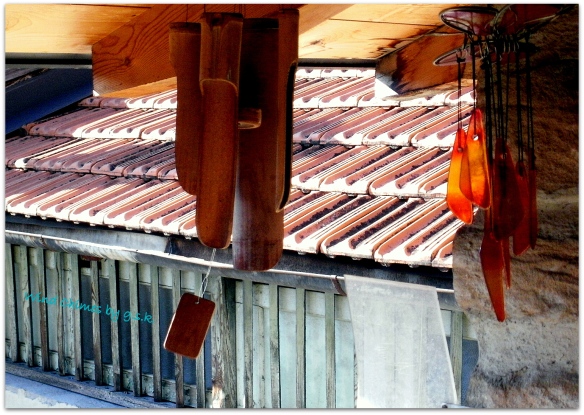bold minstrel sings
his bawdy melodies bright
for his lady love
morning serenade
sweet perfume of mimosa
and thoughts of you
what more can be said of spring
then a warming I love you?
© G.s.k. '16
Japanese Poetry and Photography

"As fascinated as Westerners have become with the word, the Japanese have maintained for centuries that no one can really, truly comprehend what sabi really is and thus, they change its definition according to their moods. Bill Higginson, in The Haiku Handbook, calls sabi – "(patina/loneliness) Beauty with a sense of loneliness in time, akin to, but deeper than, nostalgia." Suzuki maintains that sabi is "loneliness" or "solitude" but that it can also be "miserable", "insignificant", and "pitiable", "asymmetry" and "poverty". Donald Keene sees sabi as "an understatement hinting at great depths".
So you see, we are rather on our own with this! I have translated this as: sabi (SAH-BEE)- aged/loneliness - A quality of images used in poetry that expresses something aged or weathered with a hint of sadness because of being abandoned. A split-rail fence sagging with overgrown vines has sabi; a freshly painted picket fence does not." As a technique, one puts together images and verbs which create this desired atmosphere. Often in English this hallowed state is sought by using the word "old" and by writing of cemeteries and grandmas."
Carpe Diem #947 grass pillow
